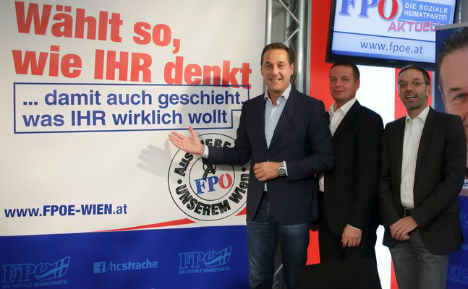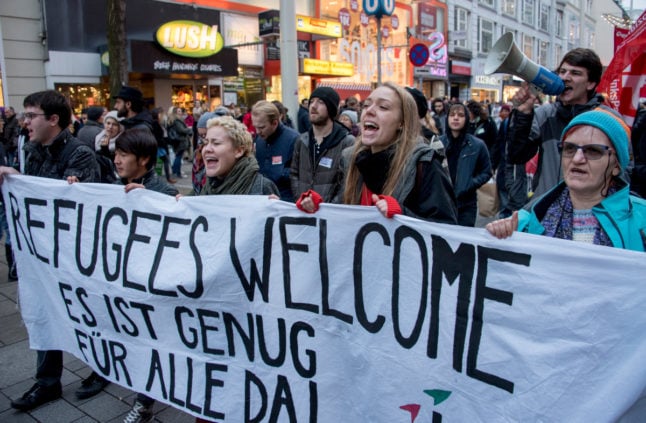The ProSiebenSat.1 Puls4 group and the RTL station both refused to air four 30-second commercials, without stating why.
The ATV station however said that it treats all political parties equally and will broadcast the ads.
Public service broadcaster ORF is not permitted to broadcast party political commercials.
In a statement ProSiebenSat.1 Puls4 confirmed that it would not be broadcasting promotional videos for the FPÖ’s top candidate Heinz-Christian Strache, or for Ursula Stenzel (formerly of the ÖVP). “Our terms and conditions state that we reserve the right to reject commercials. Now, so close to the election, our TV schedules are actually fully booked and we can’t accept any more adverts.”
One of the rejected FPÖ adverts promotes the idea of “the right to asylum for a limited time – not opening the door to everyone”, and the others deal with the themes of housing, pensioners and the economy.
IP Österreich, which markets German TV station RTL in Austria, also said that it reserves the right to reject commercials, without giving a reason. “This is what we’ve done here, and currently I know of one other business ad where we have done the same thing,” IP CEO Walter Zinggl said.
A spokeswoman for ATV, Lisa Fuchs, said that the station treats “all parties equally and we accept all party political commercials on the same terms.” She added that the FPÖ ads are “harmless”, and that the ÖVP has also called for time limits on the right to asylum.
“We would not broadcast any discriminatory advertising – all the party political ads have been reviewed to make sure they meet our terms and conditions,” she said.
The FPÖ is complaining that, with the exception of ATV, Austria’s commercial broadcasters are censoring them. “We are used to a variety of their programmes being used to direct criticism against the FPÖ,” party secretary Herbert Kickl said on the FPÖ’s YouTube channel.



 Please whitelist us to continue reading.
Please whitelist us to continue reading.